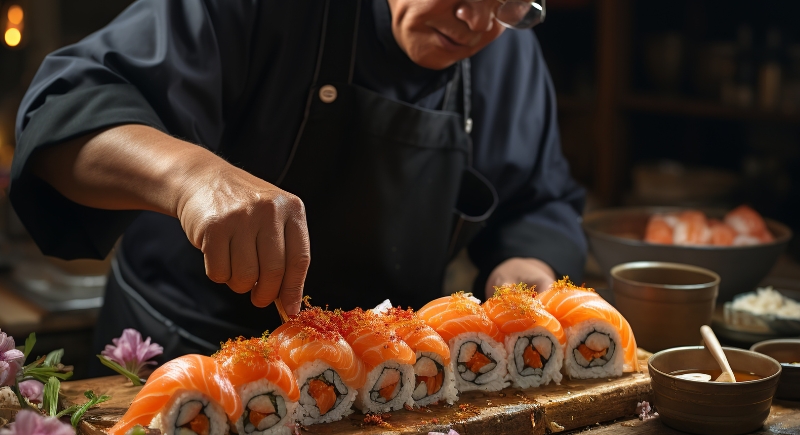You’ll Never Guess Why Warren Buffett Won’t Touch a Piece of Sushi
Warren Buffett has made billions of dollars by betting on companies that most of us couldn’t pick out on a map. He’s flown across the world, shaken hands with global leaders, and put Berkshire Hathaway’s cash into businesses ranging from candy shops to railroads. But when it comes to sitting down for dinner, the Oracle of Omaha is just as picky as a six-year-old. Literally.
By his own account, everything he enjoys eating was discovered before he hit first grade, and that menu has barely changed in decades. It also explains why one of the most powerful investors on earth won’t touch Japanese food.
The Dinner That Changed Everything

Image via Canva/Cristian Martin
To understand Warren Buffett’s stance, let’s time-travel to 1989, when Sony’s chairman, Akio Morita, invited him to his Fifth Avenue home for what should have been an impressive dinner. The apartment overlooked Central Park, the Metropolitan Museum was just across the way, and inside was a custom-built sushi kitchen with chefs serving a 15-course meal.
Buffett spent the evening sweating in silence. Plate after plate of raw specialties arrived, and plate after plate went back untouched. By the end of the night, he hadn’t eaten a single bite. Later, he called it “the worst” meal of his life and swore off Japanese food forever.
For a man known for his Midwestern politeness, the ordeal was excruciating. More so because he kept imagining how much happier he’d be with a hamburger and strawberry ice cream.
A Simple Palate for a Complicated Man
The Japanese dinner wasn’t an isolated case. Buffett has never been adventurous with food. On a trip to China in 2007, he endured another lavish, multi-course lunch before someone rescued him with a cheeseburger.
His daily diet often includes McDonald’s for breakfast, five cans of Coca-Cola, See’s Candies, and the occasional Dairy Queen Blizzard. Broccoli and Brussels sprouts have no place at his table. He once joked that eating vegetables every day would make him feel like he was going to jail.
Remarkably, Buffet is still healthy at 94. He credits luck, good genes, and happiness. Happiness, in his book, comes with a cherry Coke in hand and the comfort of junk food.
Investing Billions in the Country He Won’t Eat

Image via Canva/Creative Images
Luckily for Japan, food and business don’t always mix for Buffett. In 2020, Berkshire Hathaway bought stakes in five of the country’s largest trading houses: Itochu, Marubeni, Mitsubishi, Mitsui, and Sumitomo. He’s since expanded those positions, with recent filings showing Berkshire’s share in Mitsubishi and Mitsui now above 10 percent.
Berkshire has been steadily growing its Japan holdings while sitting on a record $344 billion in cash in the U.S. The moves indicate long-term confidence in Japan’s economic outlook and in the way these companies are becoming more investor-friendly with buybacks and dividends.
Buffett clearly believes these companies are undervalued. They are likely poised to benefit as Japan exits decades of deflation and retools its economy. Analysts estimate the trading houses are still priced at more than 20 percent below their fair value.